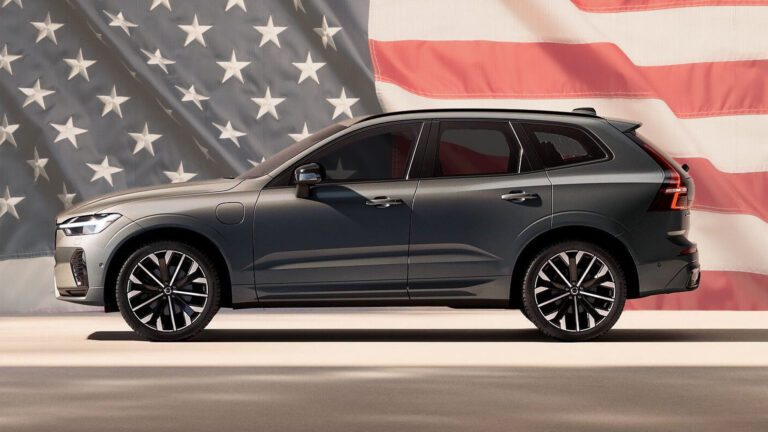Every car company is still scrambling to figure out what to do with the rapidly changing import tariff situation in America. But Volvo might be able to salvage a suboptimal situation. The Swedish company has a huge factory in South Carolina that was supposed to be all-in on EVs, but is currently running at minimal capacity. Sounds like the perfect place to start cranking out the Volvos people actually buy here.
A report from Automotive News, citing “two people familiar with the [not public] plan,” says Volvo will start building the XC60 (the brand’s best-selling model at the end of last year) at the Ridgeville, SC facility in 2027 and the XC90 (second-best seller) there by 2028.
Both those SUVs are still currently being built in Sweden.
Volvo opened its 2.3 million square-foot South Carolina factory in 2018. In 2021, it was being hyped as “the cornerstone of the Swedish automaker’s ambitious plan to become an EV-only brand by 2030,” Automotive News wrote. Safe to say that’s no longer happening, and the factory that built “about 20,000 vehicles last year” is said to be running at just 13 percent capacity. The EX90 electric SUV is the plant’s only publicly known project at the moment.
I dropped Volvo’s people a note for comments on all this, and here’s the official line I got from a spokesperson:
“Volvo Cars is committed to its long-held strategy of building where we sell — a principle that is more important now than ever. As part of this strategy, Volvo Cars has previously communicated that it’s considering adding production of another model at our U.S. plant, which has a capacity of 150,000 vehicles per year.
We are not commenting on future product or production plans at this time, but we look forward to sharing more soon.”
If all those numbers above are accurate, that makes for a lot of idle facilities and headroom to build more vehicles. And pivoting the best-selling SUVs to local production to avoid tariffs would make sense. It’s not trivial to retool a factory at all, which is why the facility hasn’t already been reassigned, but it’ll be a heck of a lot easier for Volvo to set up an existing factory to build more cars stateside than it’d be for other automakers to build entire facilities from the ground up.
So in a circuitous way, Volvo might end up benefiting from its underutilized factory and scuttled EV dreams, and its 1,600-acre headache could end up being a secret weapon against tariffs.
The Ridgeville factory was employing about 860 hourly workers in 2021 when it was building the S60 midsize sedan. What the XC60 and XC90 pivot would do for local employment remains to be seen. As of this moment, Volvo only has one job posting at Ridgeville, for a software engineer position.
Got a tip? Drop us a line at [email protected].
Read the full article here

